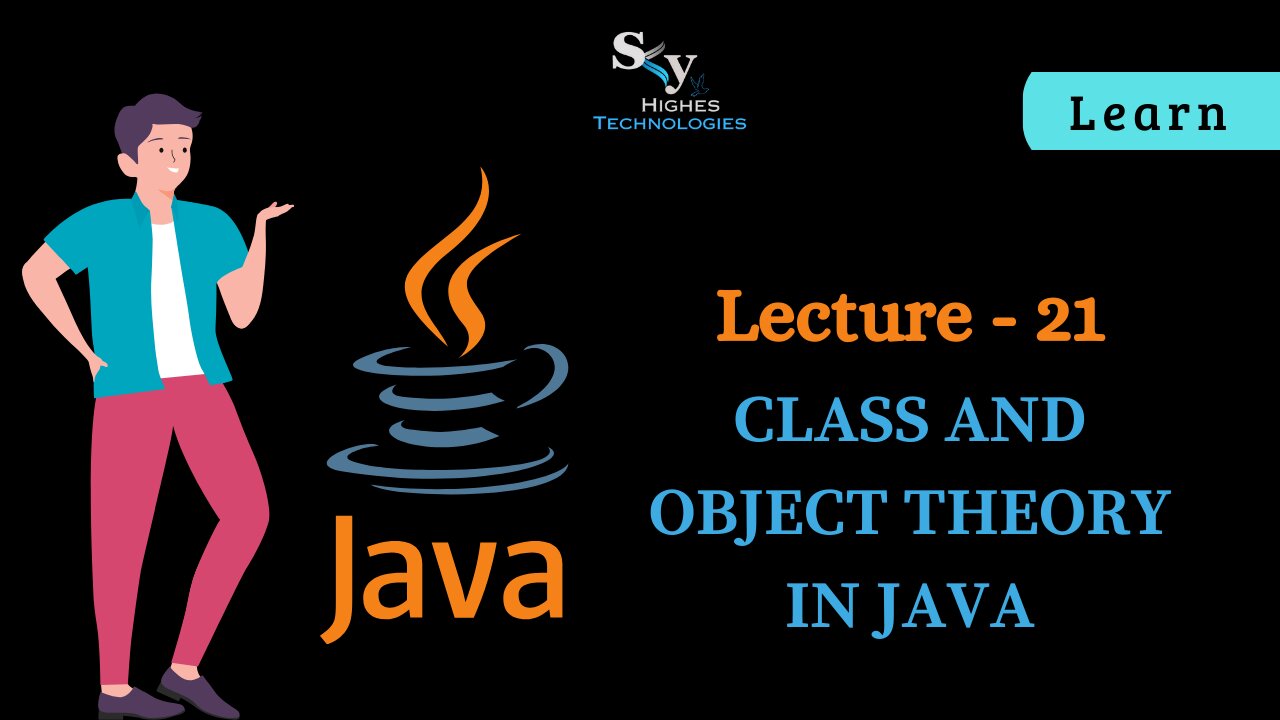Premium Only Content

#21 Class and Object Theory in JAVA | Skyhighes | Lecture 21
Classes and Objects: Foundations of OOP
Object-Oriented Programming (OOP): A programming paradigm that revolves around "objects" as fundamental building blocks. It models real-world entities and their relationships, promoting code reusability, maintainability, and modularity.
Classes: Blueprints or templates that define the characteristics (attributes) and behaviors (methods) of objects. They specify what objects of that class will look like and what they can do.
Objects: Instances of classes. They are concrete entities with specific state (values of their attributes) and the ability to perform actions (methods).
Key Concepts:
Class Declaration:
Use the class keyword followed by the class name.
Enclose attributes (variables) and methods (functions) within curly braces.
Java
public class Dog {
String breed;
int age;
void bark() {
System.out.println("Woof!");
}
}
Use code with caution. Learn more
Object Creation (Instantiation):
Use the new keyword followed by the class name and a constructor call.
Java
Dog myDog = new Dog();
Use code with caution. Learn more
Attributes (Member Variables):
Represent the data associated with an object.
Define them within the class using various data types (e.g., int, String, boolean).
Methods (Member Functions):
Define the actions that objects can perform.
Contain code blocks that operate on the object's attributes and other data.
Accessing and Modifying Object State:
Use the dot (.) operator to access attributes and methods of an object.
Java
myDog.breed = "Labrador";
myDog.bark(); // Output: "Woof!"
Use code with caution. Learn more
Understanding the Relationship:
A class is like a recipe for creating objects.
Each object is a unique instance of the class, with its own set of attribute values.
Objects interact with each other by calling each other's methods.
Benefits of OOP:
Encapsulation: Bundling data and behavior within objects, protecting data integrity.
Inheritance: Creating new classes (subclasses) that inherit properties and behaviors from existing classes (superclasses), promoting code reusability.
Polymorphism: Objects of different classes responding to the same method call in different ways, allowing for flexible and adaptable code.
Remember: Classes and objects are fundamental to OOP and essential for structuring Java programs effectively. Understanding their relationship and properties is crucial for building well-organized and maintainable software.
-
 2:25:31
2:25:31
vivafrei
21 hours agoEp. 281: Charlie Kirk; Routh Trial; Charlotte Train; Bolsanaro Defense; SCOTUS & MORE!
157K244 -
 2:55:38
2:55:38
Turning Point USA
12 hours agoWASHINGTON D.C. PRAYER VIGIL FOR CHARLIE KIRK
102K44 -
 35:54
35:54
The Mel K Show
12 hours agoMel K & Tim James | Healing is an Inside Job | 9-14-25
81.1K4 -
 3:06:33
3:06:33
IsaiahLCarter
15 hours ago $15.93 earnedCharlie Kirk, American Martyr (with Mikale Olson) || APOSTATE RADIO 028
84.9K30 -
 16:43
16:43
Mrgunsngear
18 hours ago $13.33 earnedKimber 2K11 Pro Review 🇺🇸
65.3K14 -
 13:40
13:40
Michael Button
1 day ago $4.08 earnedThe Strangest Theory of Human Evolution
54.3K31 -
 10:19
10:19
Blackstone Griddles
1 day agoMahi-Mahi Fish Tacos on the Blackstone Griddle
38K3 -
 23:51
23:51
Jasmin Laine
1 day ago“Stop Wasting My Time!”—Trump's BRUTAL WARNING To Canada As Poilievre ROASTS CBC LIVE
30.3K30 -
 9:54
9:54
Millionaire Mentor
1 day agoNBC Host EXPOSES JB Pritzker For Saying This About Trump
19.2K14 -
 1:35:39
1:35:39
SB Mowing
2 days agoIt took the WHOLE NEIGHBORHOOD to uncover this yards SHOCKING SECRET
101K66